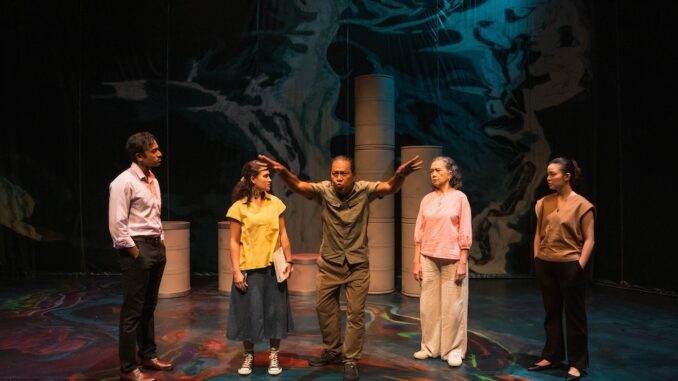
To be honest, this isn’t the usual genre that I watch. There was also a mix-up on my end that resulted in me watching the show alone (I had previously thought I’d have the company of an oil and gas friend who could help elucidate aspects of the show that I wasn’t sure about). So I have to admit I didn’t watch Playing With Fire in the best of circumstances.
But I was surprised! Pleasantly surprised. It wasn’t what I thought it’d be (I thought it’d be a dry argument about the environment) and it turned out to have a very fair and empathic approach to the topic. It’s the most unexpected of things that can shed the keenest of insights, and I, for one, am glad that I caught Playing With Fire.
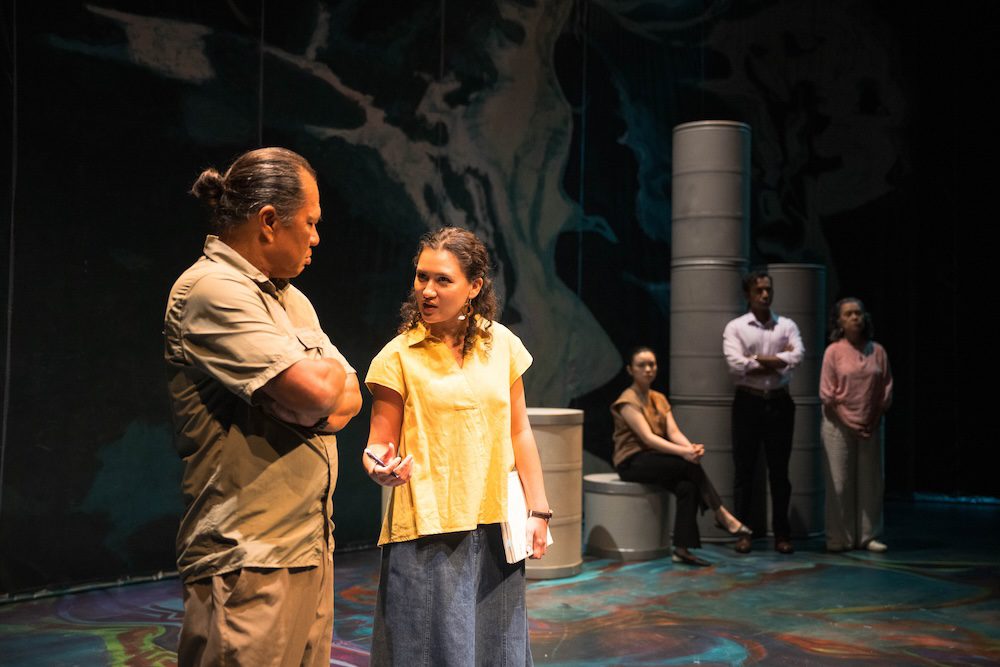
Synopsis
Playing With Fire is a play that revolves around a writer who interviews several employees in the oil and gas industry for a play she intends to write. Her environmentalist views are soon challenged as she discovers that issues are not as black and white as she had thought, even as she uncovers truths about her interviewees’ lives – and her own.
Director: Claire Wong
Writer: Cheyenne Alexandria Phillips
Cast:
- Rebecca Ashley Dass (Interviewer [Sue Rozario])
- Cheryl Lee (Process Engineer)
- Gosteloa Spancer (Mid-Career Professional)
- Nora Samosir (Retired Manager)
- Rafaat Haji Hamzah (Technician)
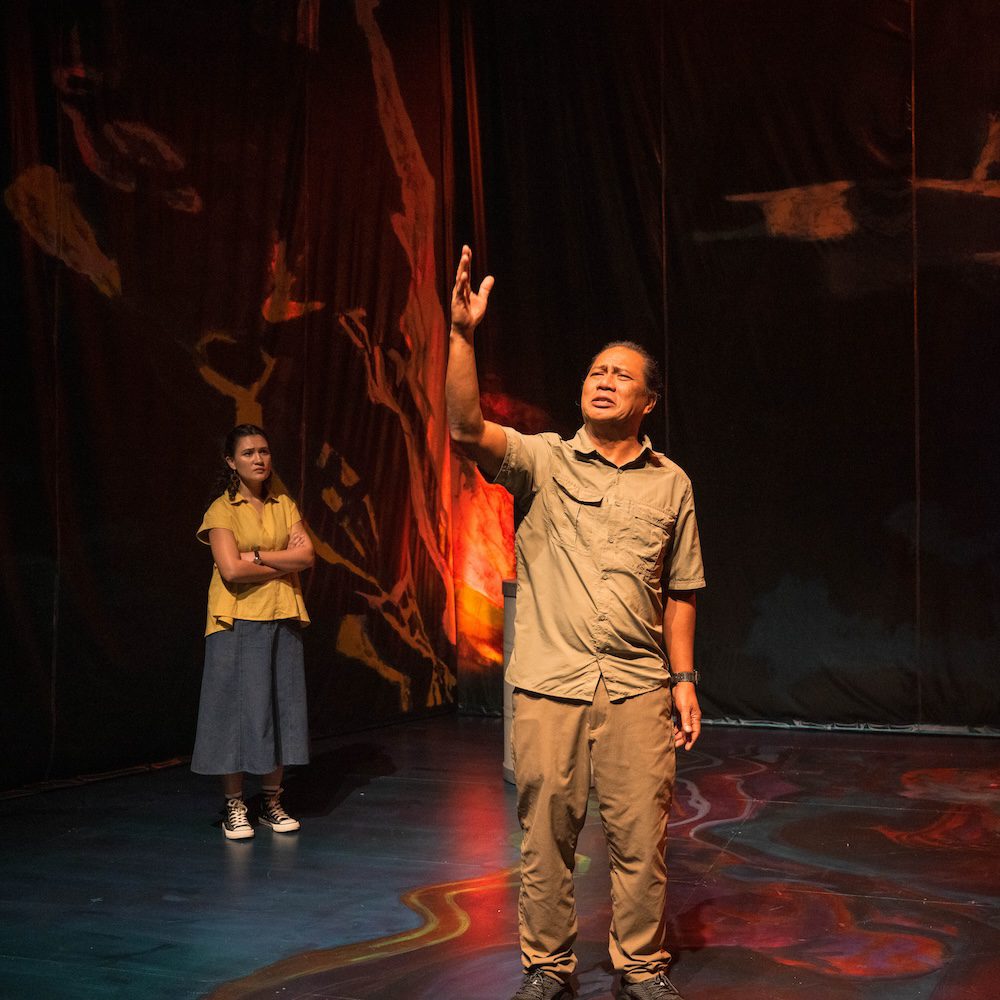
It’s all about people
Clean energy. Fossil fuels. Environmental conservation. Going green. Playing With Fire opens true to its premise – that it’s a tug-of-war between the practical commercial reality of the oil and gas industry vs the green energy activism that places the environment first. Framed from that perspective, it’s easy to demonise an entire industry. But what the play does is to give a human face to the individuals in the petrochemical industry. As it succinctly reminds us, it’s fundamentally about people. People who mean well, people who have the interests of other people at heart. And no matter where you stand on the issue, there’s one commonality that binds us all – that we’re all still part of the human race.
Rafaat Haji Hamzah’s performance as the Technician
The Technician is a character who represents the experiences of those working on the ground in the petrochemical industry, of the rank and file employees who are involved in the day-to-day operations. But what Rafaat Haji Hamzah does is to lend a very Singaporean, very relatable, very endearing face to the character. The Technician doesn’t just work in an oil and gas giant, he’s also a father. A breadwinner. A man who does what he does to support his family, only to find that the more idealistic members of his family aren’t quite as supportive as he hopes.
Rafaat delivers an emotional performance across the entire spectrum of shame, guilt, pride, fear. His riveting delivery underscores the theme of the play – that it’s about people. And when you come away from the show, it’s his hopes, his dreams, his struggles that exemplify the key conflict of Playing With Fire.
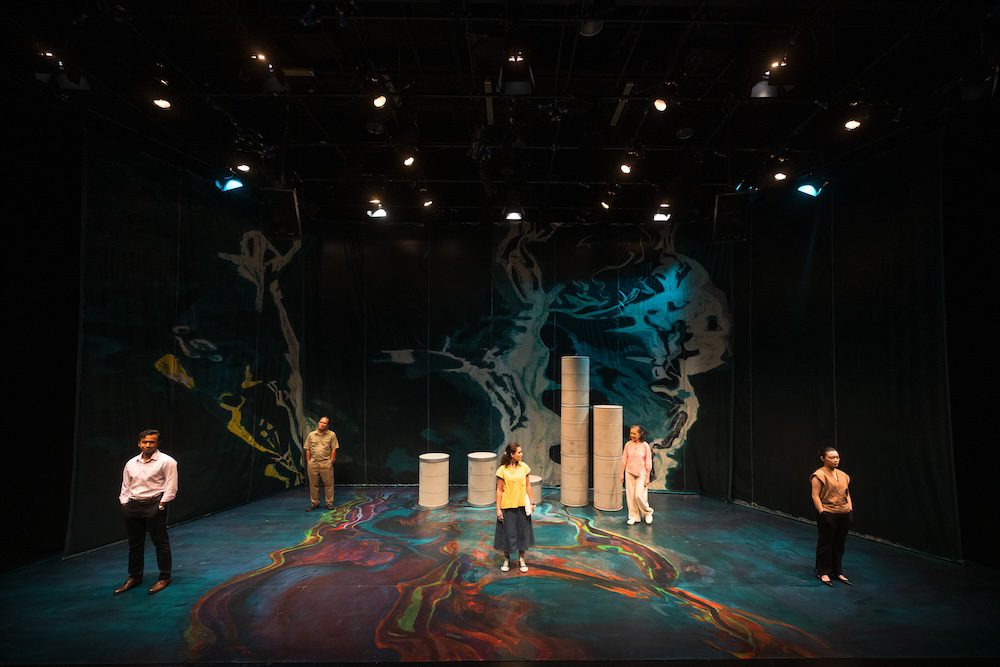
A sense of mystery
Again, I thought that the play would just be two sides arguing for and against the oil and gas industry. So understandably, I was delighted to find that there was an unfolding plot that shed light on a mysterious incident that happened before the events of the main story. That the main character Sue (Rebecca Ashley Dass) has personal ties with almost all of the characters. That to some extent, this isn’t just about environmental activism for her – it’s a personal journey. As the play progresses, it’s this mystery that we become invested in, to uncover secrets and find out the complicated relationships she has with most of her interviewees.
A very meta framing of the story
The play is framed as a writer interviewing other characters for a play that she wants to write. As a theatrical production, it takes a non-linear approach towards framing the interviews, intercutting between them as the story progresses. However, the characters often ask Sue whether there will be a character written about them in Sue’s play. This highly meta-theatrical approach is intriguing the first few times it’s mentioned, and it feels like it was leading to a large payoff in the end. For me, I wasn’t very convinced about the objective and effect of this meta framing, although I can see the artistic merit of the choice.
The delicate balance of Sue’s humanity
The central character, Sue, comes across as a brash, take-no-prisoners sort of character who’s determined to expose the ills of the petrochemical industry. Fair enough – it is the premise of the play, and having the protagonist espouse such views makes sense from a narrative perspective. It’s only later that we see a softer side of Sue, that we see her relaxing her views towards oil and gas and relinquishing the hard, abrasive stance that she took earlier. It’s the Sue that we see in the later half of the play that is more endearing. We see her change, her evolution – but I’d have preferred to see this softer, gentler Sue earlier in the play.
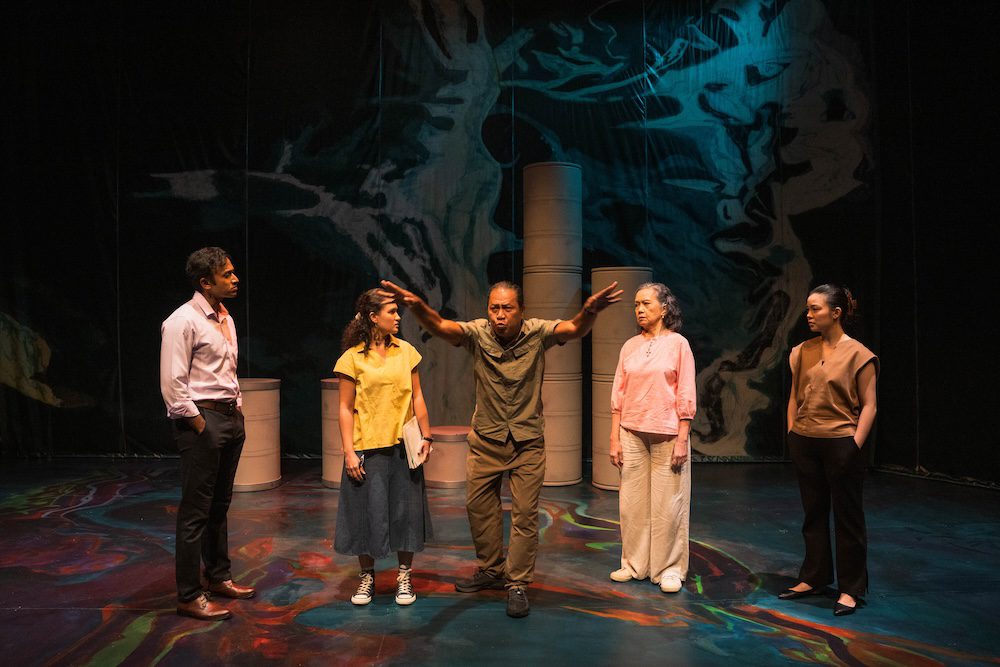
Should you watch it?
Playing With Fire delivers on its premise and beyond. It’s not so much a balanced perspective, as it is a human perspective, that the play provides. Yes, there’s an environmental message there – and it also exhorts viewers to consider the lives and humanity of those in such a reviled industry. Regardless of where you stand on the issue, one thing remains true – that it’s about people.
Score: 7/10
Playing With Fire runs from 15 August to 25 August.
Leave a Reply